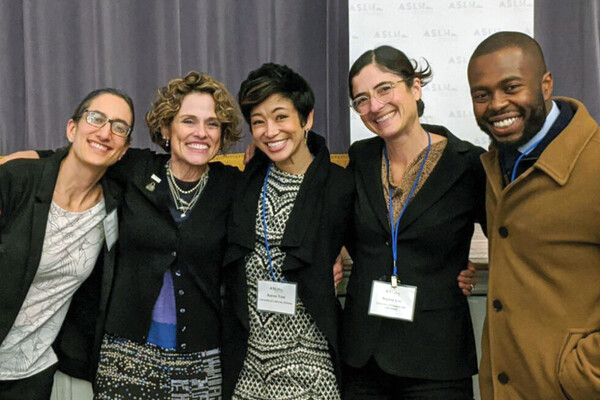Celebrity breast cancer announcements highlight rising rates in young women
Oluwadamilola Fayanju of the Perelman School of Medicine recommends that young women with breast cancer symptoms go to a center that’s experienced in breast imaging.
How to close the gender competition gap
A study by Katy Milkman and Ph.D. student Sophia Pink of the Wharton School finds that women are less likely to enter competitions than their male colleagues at work.
What is taurine, the anti-aging supplement going viral — and is it worth the hype?
Joseph Baur of the Perelman School of Medicine says that a decline in taurine is not a universal feature of aging.

A selection from a portrait of Thomas Muntzer from 1609.
COURTESY CLEVELAND MUSEUM OF ART
The 500-year legacy of a political thinker

Legal History Consortium members (from left) Serena Mayeri; Sarah (Sally) Barringer Gordon; Karen Tani, Sophia Lee; and Shaun Ossei-Owusu.
(Image: Courtesy of Penn Carey Law)
Research and scholarship at the intersection of law and history
Chronic absenteeism and low graduation rates cost California billions
AI risks ‘broken’ career ladder for college graduates, some experts say
Lynn Wu of the Wharton School says that generative AI is breaking the traditional career ladder for recent college graduates.
10 American inventions that helped win D-Day
In the early 1940s, Penn medical student Christian Lambertsen designed the LARU respirator as a self-contained breathing device for covert underwater missions.
Role of belly fat in psoriasis risk signals need to pivot from ‘outdated’ treatments
Joel M. Gelfand of the Perelman School of Medicine emphasizes the lack of psoriasis treatments that address central obesity as a risk factor.
My daughter died after a medication error at a NJ group home. Honor her memory
In an opinion essay, Lynne Moronski of the School of Nursing and Leonard Davis Institute writes that nurses and certified medication aides should be a standard requirement in group homes to help reduce preventable deaths.